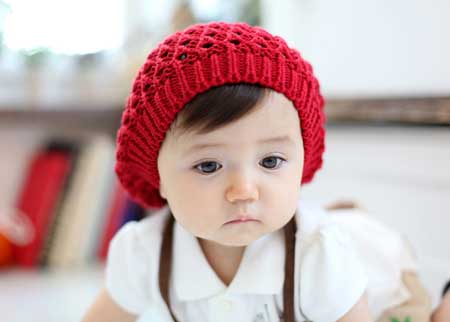
Babies can only remember happy moments, new research suggests.
一项最新的研究表明,婴儿的记忆中仅留存欢乐时光。
Researchers at Brigham Young University discovered that babies are more likely to remember things that trigger positive emotions.
杨百翰大学(Brigham Young University)的研究人员发现,婴儿更加偏向于去记忆那些能够触发正面情绪的事情。
"People study memory in infants, they study discrimination in emotional affect, but we are the first ones to study how these emotions influence memory," lead author Ross Flom, a psychology professor at Brigham Young University, said in a press release.
该研究的主要负责人、杨百翰大学心理学教授罗斯·弗洛姆(Ross Flom)在发布会上说道:“有人研究婴儿的记忆,研究他们对于不同情绪所产生影响的辨别力,但在情绪如何影响记忆方面,我们是研究的先行者。”
Flom and his team monitored the eye movements of a group of five-month-olds who were placed in front of a computer screen and exposed to a person speaking to them with either a happy, neutral or angry voice. The babies were immediately shown a geometric shape after the emotional exposure.
弗洛姆和他的团队监测了一组5个月大婴儿的眼球活动。他们把这些婴儿放在电脑屏幕前,并分别播放用快乐、中性、生气语调交谈的人物画面。在每个的画面放完之后,研究人员会迅速向婴儿展示一个几何图形。
Researchers tested infant memory by showing the babies the shapes three times: the first time, 5 minutes after and a day later. Then the babies were exposed to two side-by-side geometric shapes: a brand new one, and the original one from the previous test.
研究人员分别在试验刚开始、5分钟后、一天之后向婴儿展示几何形状,以此来测试婴儿的记忆。随后,研究人员会同时展示两个图形:其中一个是新的,另一个则是之前测试中出现过的。
After analyzing eye movements, researchers discovered that babies were significantly more likely to remember shapes paired with positive voices.
在分析过眼球活动之后,研究人员还发现,婴儿更易于记忆那些伴有快乐声音的图形。
"We think what happens is that the positive affect heightens the babies' attentional system and arousal," Flom concluded. "By heightening those systems, we heighten their ability to process and perhaps remember this geometric pattern."
“我们认为之所以会这样,是因为正面情绪提升了婴儿的注意力系统和唤醒系统。”弗洛姆总结道。“通过提升这些系统(功能),我们也增强了婴儿处理、或许还有记忆几何图形方面的能力。”
(翻译:实习营490252028 编辑:Helen)
